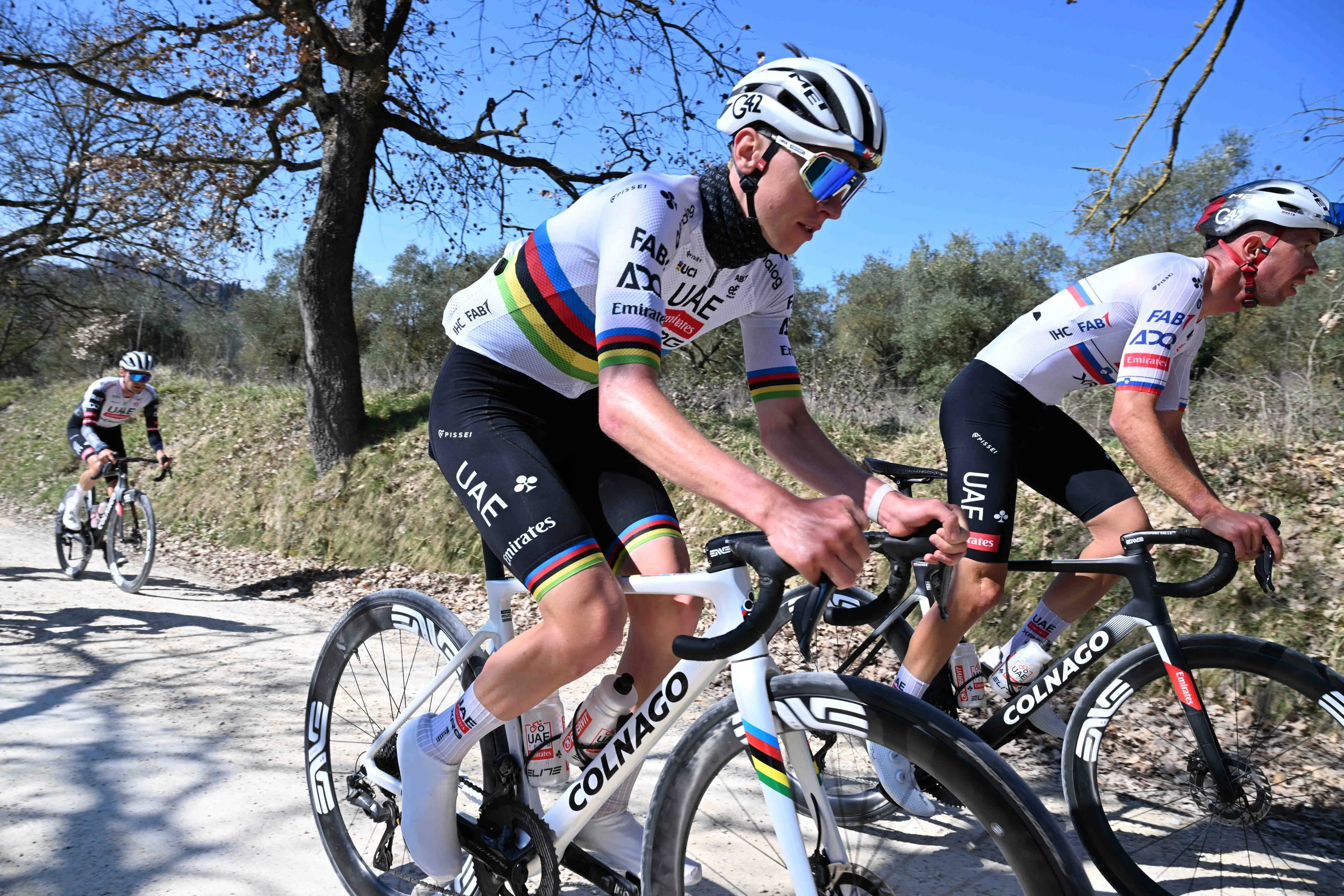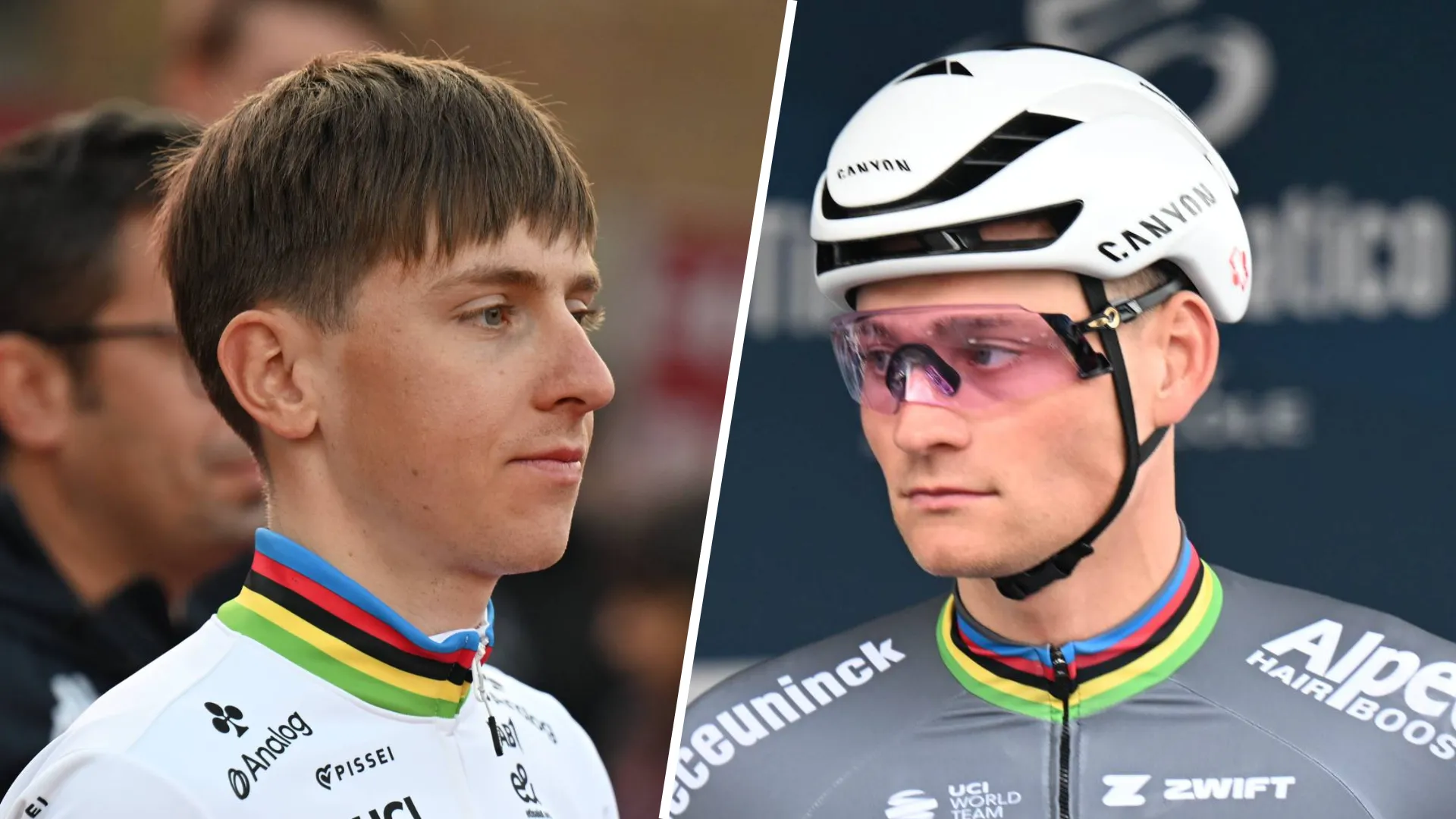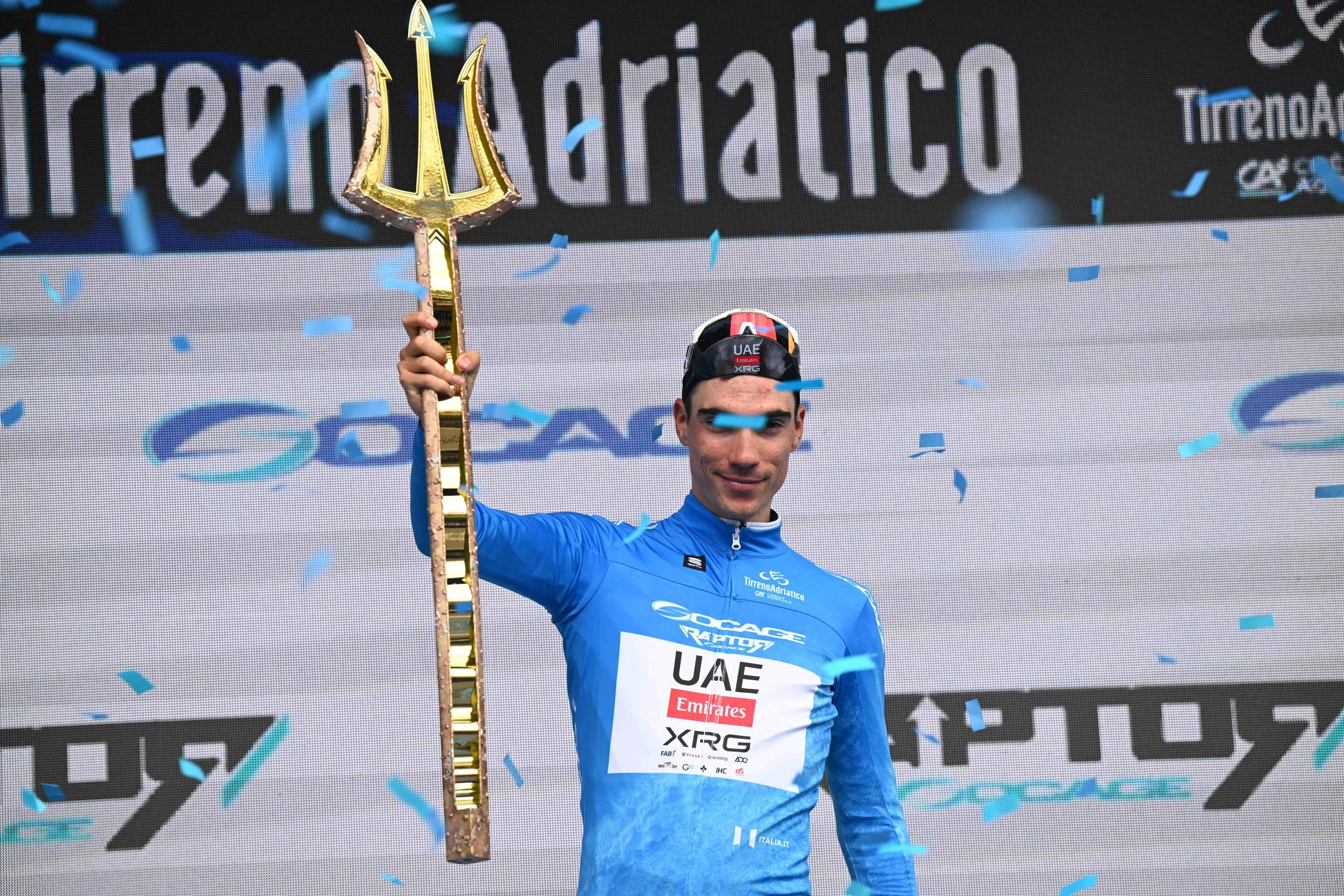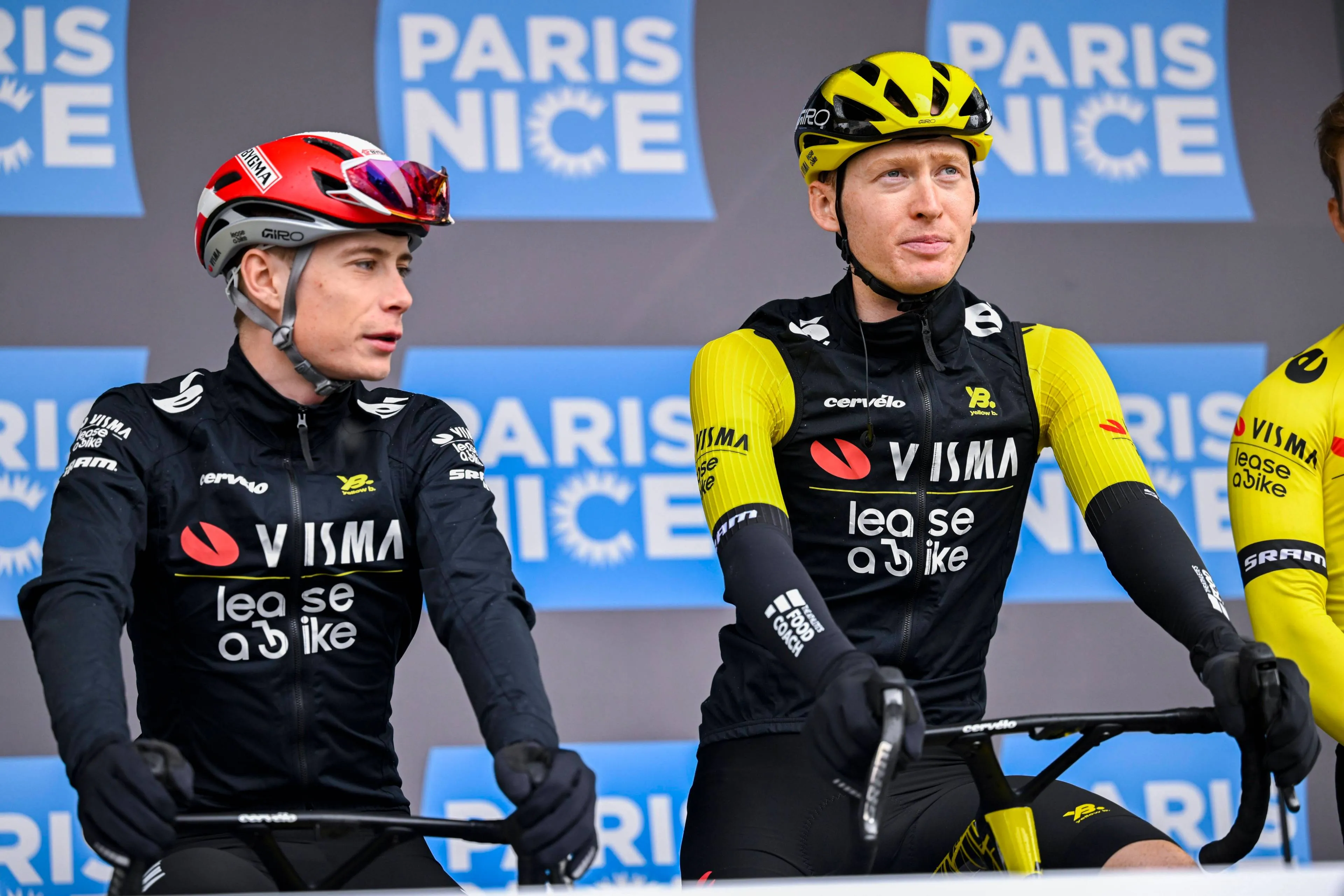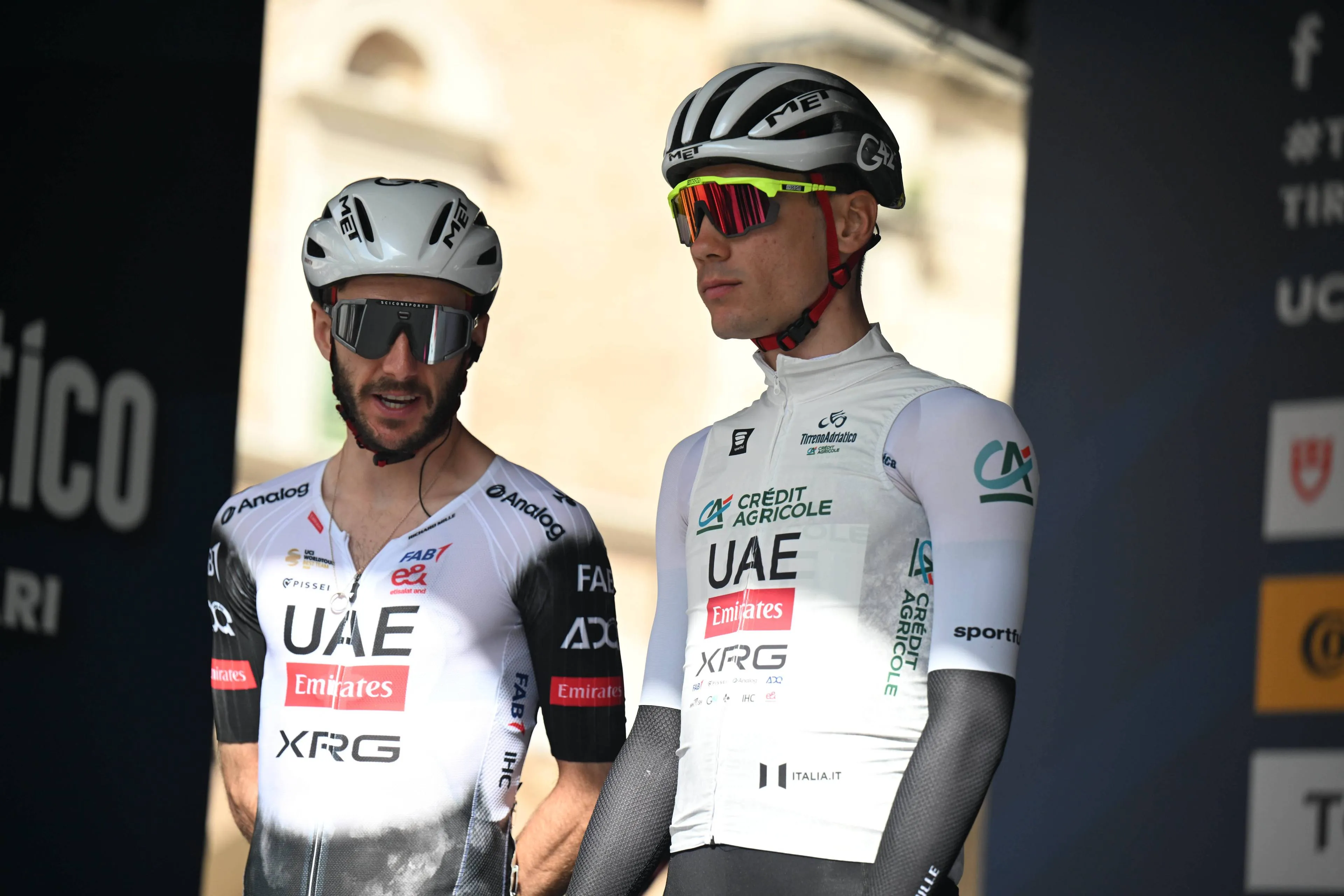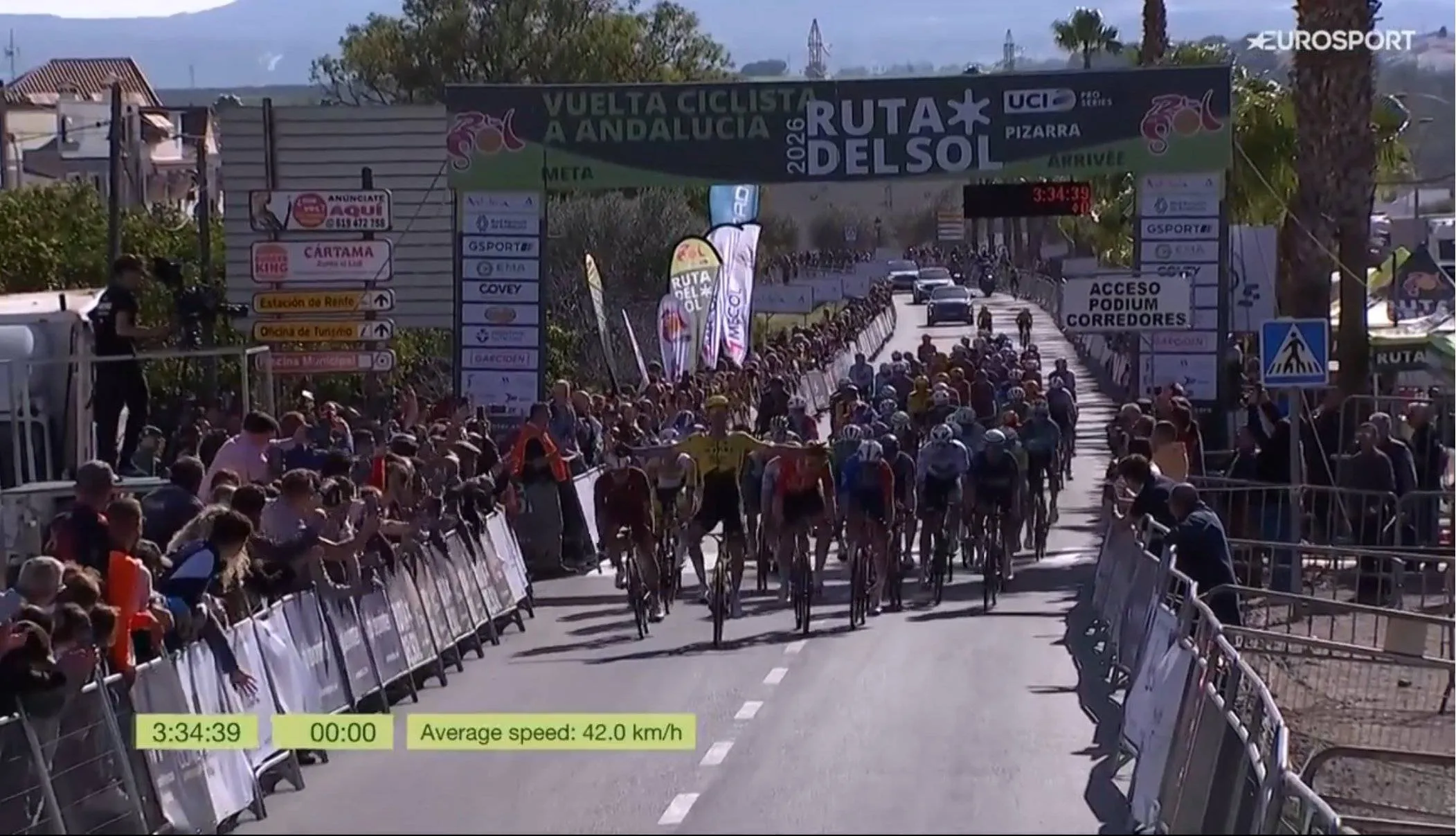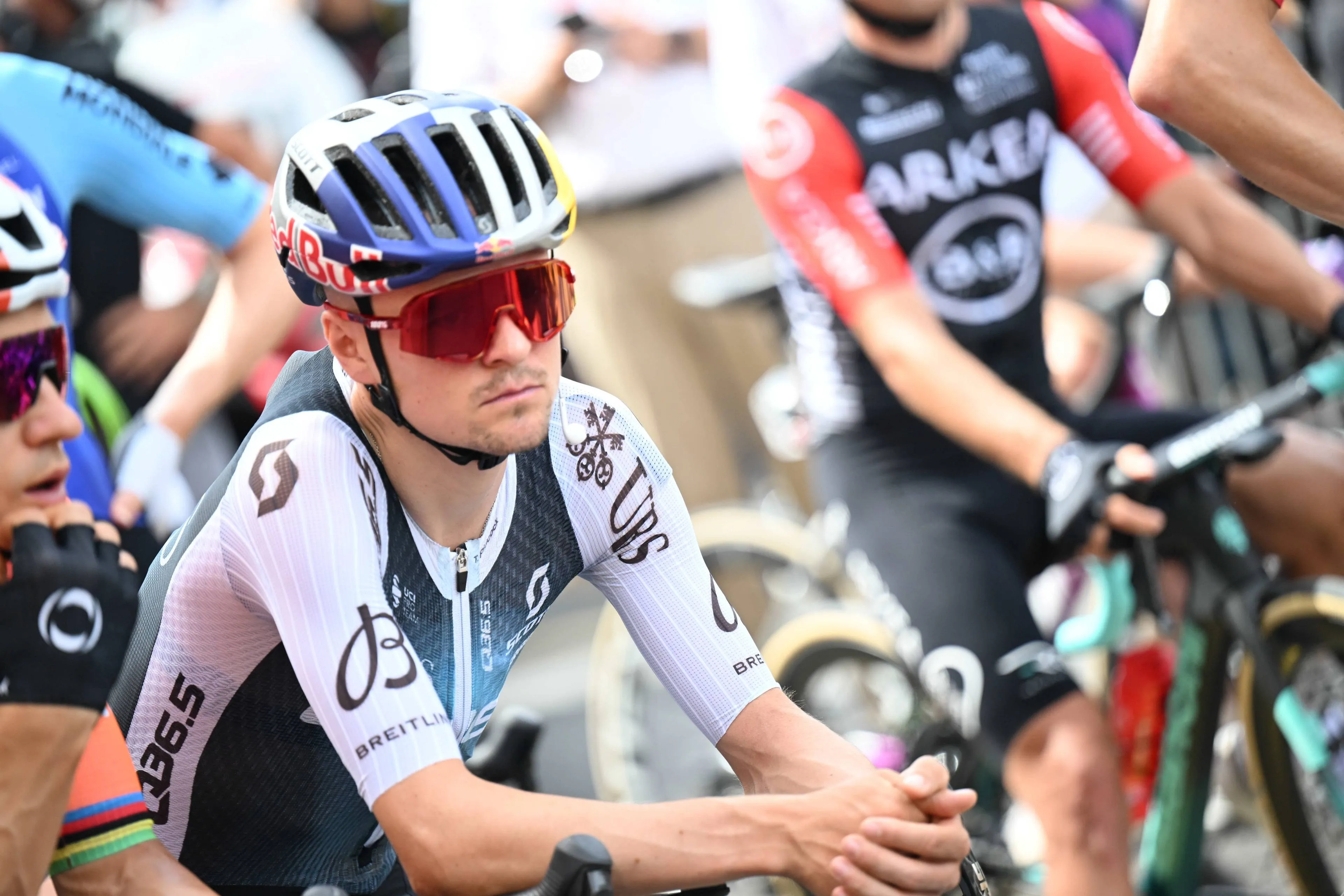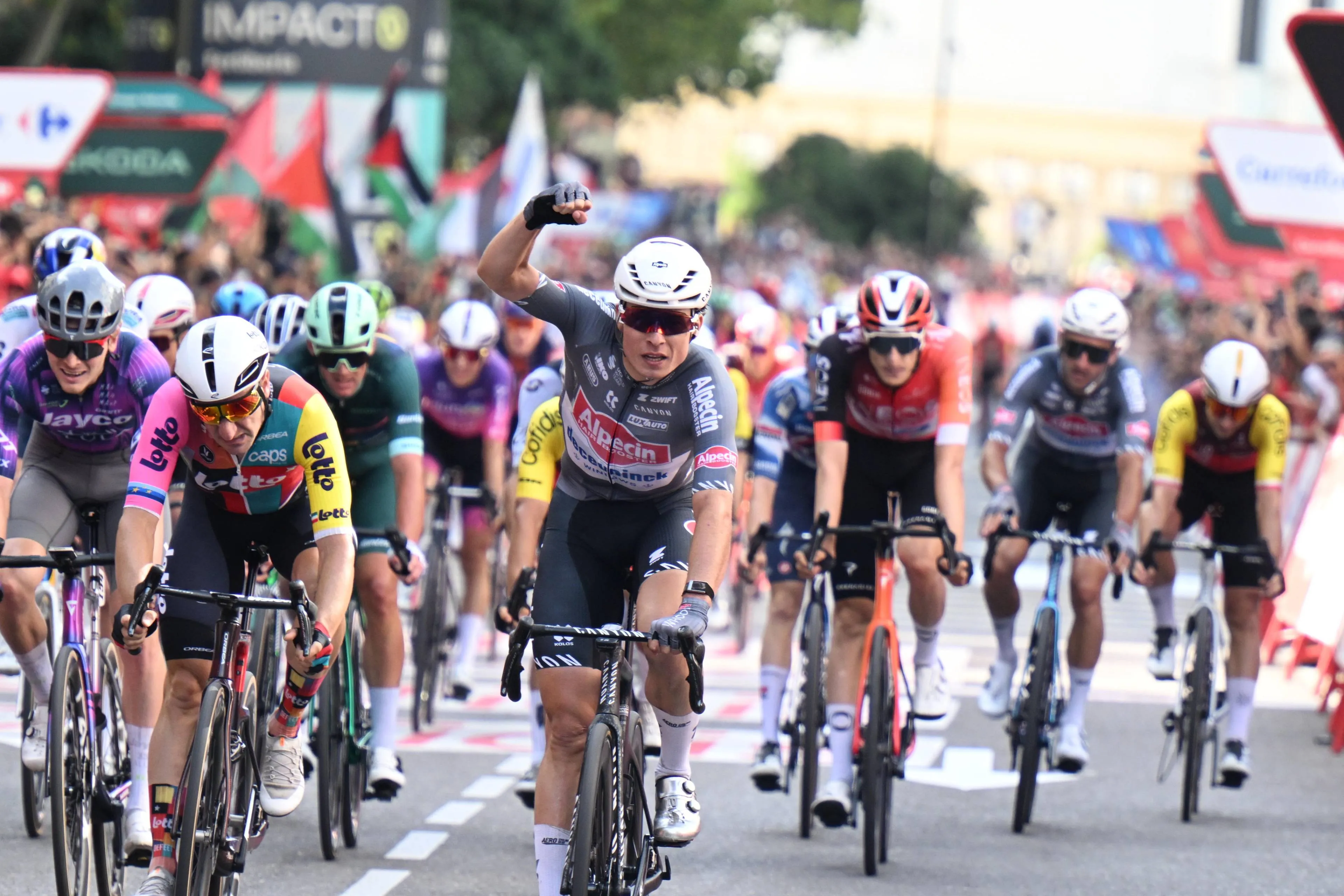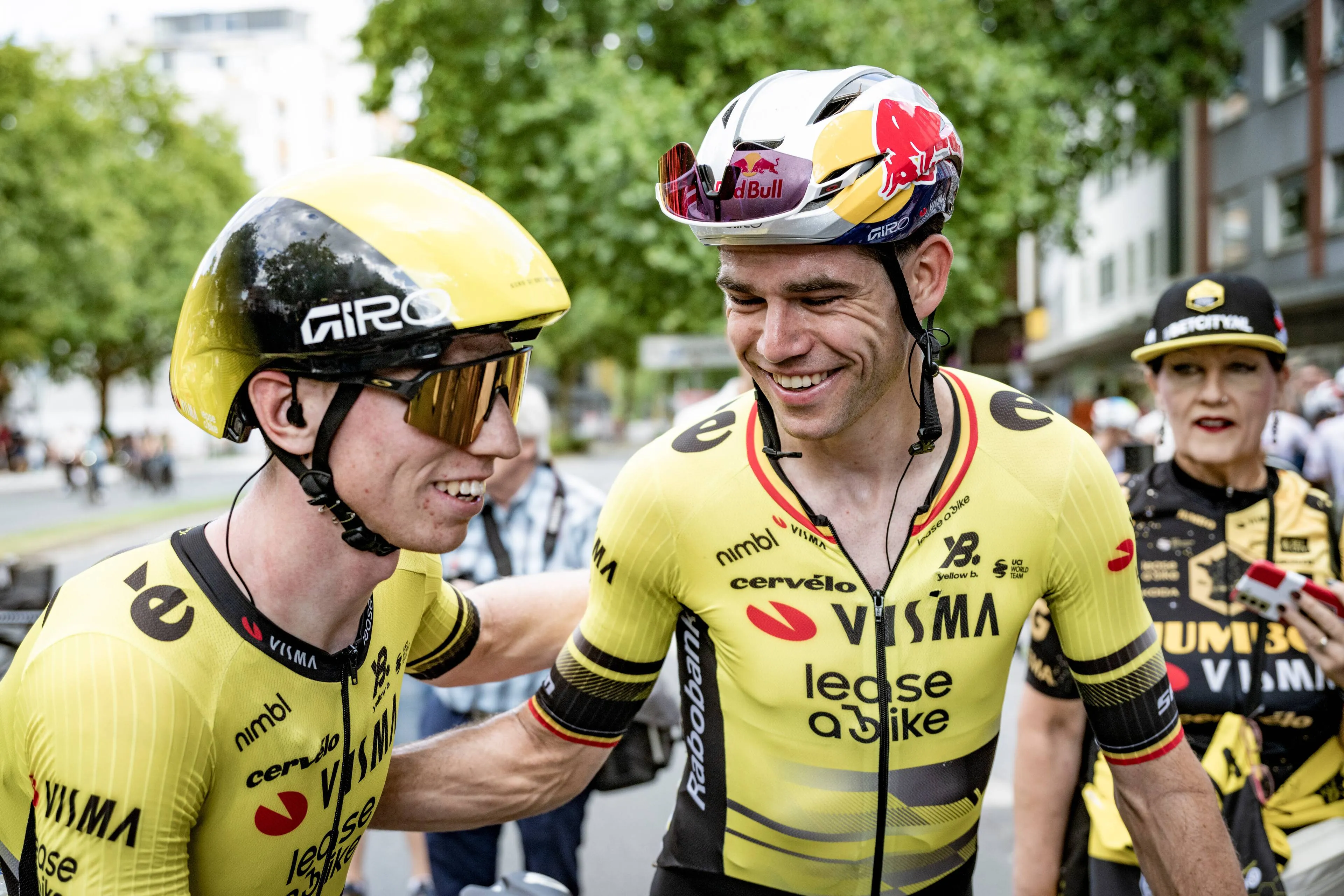Giro d'Italia boss believes not all teams want to race three grand tours: "There are too many teams that ride all the big tours"
CyclingTuesday, 18 March 2025 at 23:00
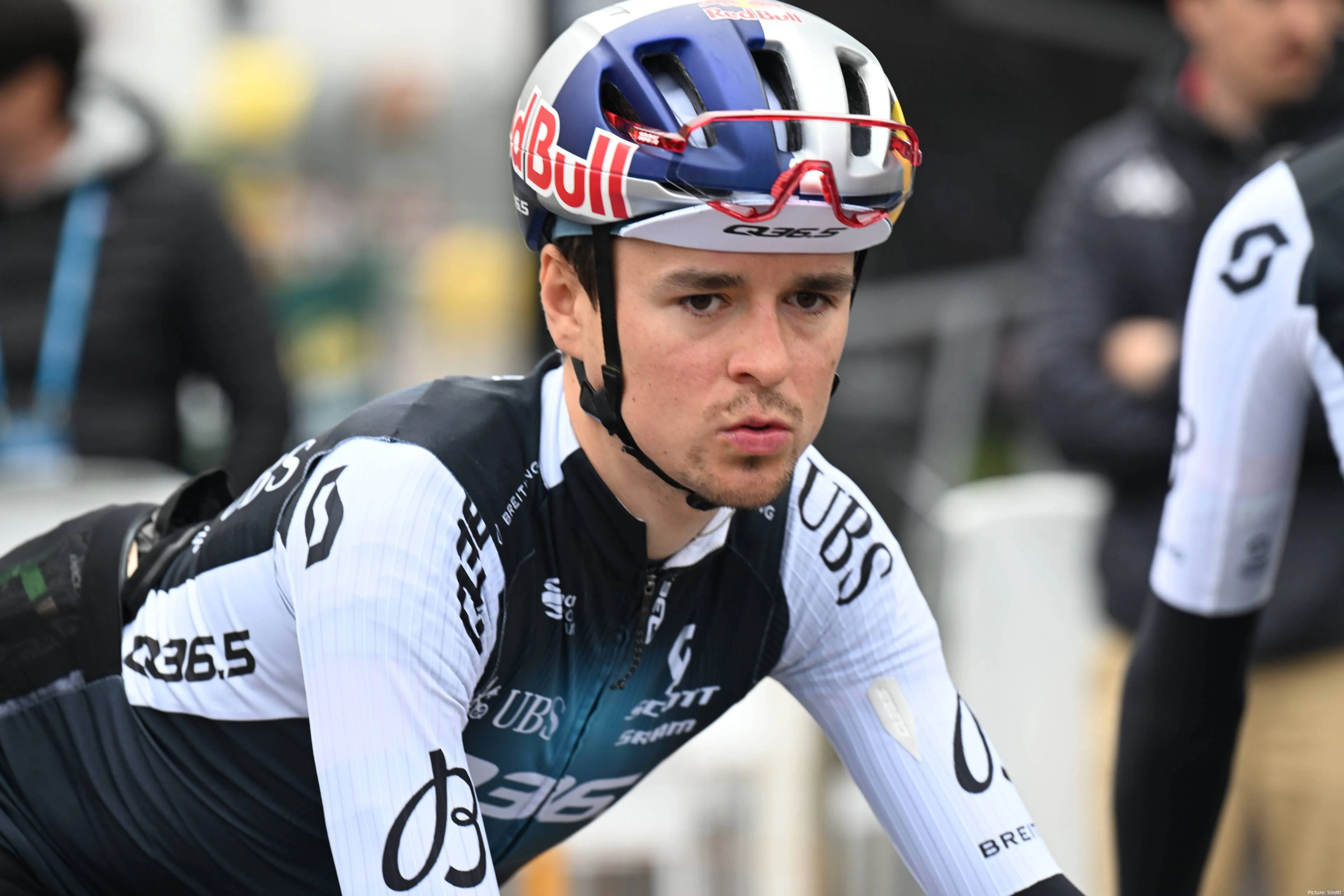
Few topics in cycling have sparked as much debate in 2025 as
Grand Tour wildcards. The issue, which has been simmering since the winter, has
become even more pressing as high-profile riders like Julian Alaphilippe and
Tom Pidcock have joined ProTeams, making wildcard selection even more
competitive. The controversy revolves around whether Grand Tours should expand
to 23 teams or if the current system, which allows only 22 teams of eight
riders, should remain unchanged.
Currently, each Grand Tour hosts 22 teams, each made up of eight
riders. A few years ago, race organisers reduced team sizes from nine to eight
in an effort to increase safety and make the races more unpredictable.
Read also
The 18
WorldTour teams are guaranteed a place in every Grand Tour, while the two
highest-ranked ProTeams from the previous WorldTour relegation cycle (Lotto and
Israel-Premier Tech) also receive an automatic invitation. However, Lotto has
chosen to forgo their place at the Giro, leaving three open wildcards for race
organisers to distribute.
That will certainly have got Pidcock and Alaphilippe’s
attention.
Traditionally, wildcard invitations are split between strong
Pro Continental teams and domestic teams from the country hosting the Grand
Tour. In the Giro d’Italia, this has typically meant a place for Bardiani, in
the Tour de France, TotalEnergies, and in the Vuelta a Espana, Burgos-BH.
Read also
This year, the situation has been further complicated by top-tier
talent dropping down to ProTeams. The presence of riders like Alaphilippe,
Pidcock, and Marc Hirschi in the Pro Continental ranks means that demand for
wildcards has skyrocketed, leading to unusual delays in their distribution. As
a result, the cycling world has been divided on whether the sport should allow
23 teams to start Grand Tours to accommodate more of these star riders.
The proposal has gained traction among some race organizers,
but it faces strong resistance from key figures in the sport. Visma | Lease a
Bike boss Richard Plugge has been one of the loudest critics, refusing to
support the expansion of team numbers. His stance is rooted in the belief that reducing
team sizes was meant to make racing safer and more dynamic, and that increasing
the number of teams would contradict that objective.
Yet, the fundamental question remains: Does a smaller
peloton actually make races safer, or does it just make them less predictable?
While Plugge’s position is understandable, the reality is that the current
system now forces race organizers to exclude high-profile riders who would
significantly boost public interest.
Read also
Giro d’Italia race director Mauro Vegni has thrown another
perspective into the debate. Instead of focusing solely on expanding the race,
he has questioned whether all WorldTour teams even want to participate in every
Grand Tour.
"There are too many teams that ride all the big tours,
while they may not even want to," Vegni recently told Sporza.
Vegni wonders whether teams like Cofidis or Groupama-FDJ,
for example, would actually choose to race if they weren’t required to. If
teams lack a clear leader or strategic focus on a particular Grand Tour, should
they be forced to participate?
Read also
The idea of allowing more flexibility for WorldTour teams to
opt out could create additional wildcard spots without needing to increase the
total number of teams. However, this would challenge the traditional notion
that Grand Tours must feature all WorldTour squads as the highest-ranked teams
in cycling.
For now, the Professional Cycling Council is set to meet on
March 26 to discuss the issue, leaving riders like Pidcock, Alaphilippe, and
Hirschi uncertain about their Grand Tour schedules.
Read also
“All the big organizers are asking for extra wildcards. I
see a great opportunity here to let more smaller teams compete against the top
teams,” Vegni said.
However, he has yet to reveal his own decision on wildcard
selections for the 2025 Giro.
"It would indeed be a shame if Pidcock were not there.
But you can say the same about teams that train young riders, like
Bardiani."
Read also
claps 0visitors 0
Just in
Popular news
Latest comments
- You can't win 'em all. These early season races at this level are good because it shows where you are weak and need work.awp18-02-2026
- This is what I wrote 12-02-2026 10:00: "As far as I'm convinced, Remco still has "zero" wins. I invite Remco to stop in Siena to meet his Slovenian master, Pogi the G.O.A.T... but no, it's better to run away and hide. His fans will somehow defend and glorify him. Let me repeat, he still has zero wins in 2026. If someone doesn't have a high enough IQ to understand what I'm talking about, it's because they don't recognize the low ranking F category races. If Remco will beat Del Toro and Adam Yates in the UAE Tour, then I will consider this to be his first win in 2026. Ad acta." PS: Remco still has zero wins. His second and third class races don't count. The first real race comes along and Mustafa Remco fails.Mou-Cro-HR18-02-2026
- This is what I wrote 12-02-2026 10:00: "As far as I'm convinced, Remco still has "zero" wins. I invite Remco to stop in Siena to meet his Slovenian master, Pogi the G.O.A.T... but no, it's better to run away and hide. His fans will somehow defend and glorify him. Let me repeat, he still has zero wins in 2026. If someone doesn't have a high enough IQ to understand what I'm talking about, it's because they don't recognize the low ranking F category races. If Remco will beat Del Toro and Adam Yates in the UAE Tour, then I will consider this to be his first win in 2026. Ad acta." PS: Remco still has zero wins. His second and third class races don't count. The first real race comes along and Mustafa fails.Mou-Cro-HR18-02-2026
- OK, let's stop with the BS. Remco Mustafa didn't have any cramps, 100%. The only truth is, Remco is not the great cyclist that the Belgians and his fans want us to think. Ad acta!!!... Once in the fall of 2025 I said that Remco's chances of following Pogi are equal to my chances, there is no difference. The only difference is that I'm in front of a TV and Mustafa is acting and making excuses live in front of an audience of millions. Ayuso and Remco are the biggest liars in the peleton.Mou-Cro-HR18-02-2026
- I just hope that he just says that he got cramps and that's it, rather than some long-winded excuse which makes him seem even more of a piece of...
 Rafionain-Glas18-02-2026
Rafionain-Glas18-02-2026 - finally, a team that does something smart. I could never understand why Ineos would like Egan train as he did alone. put a motorbike behind him with an earpiece to call out issues above. same with remco crashing into a postal truck.mij18-02-2026
- Wow, that is not a good sign for Remco. Great win for Tiberi!Pedalmasher18-02-2026
- Great champion Remco but his profile is more suitable for Ardennes-like races and tour with no very hard climbs. Not only Tadej and Vingegaard, there are a lot of younger cyclists (del Toro, Ayuso, maybe Seixas, Nordhagen and others) that will soon be big GC boys.
 maria2024202418-02-2026
maria2024202418-02-2026 - Evenopoel 1st real test, and he failedZamorano18-02-2026
- Remco is not the natural climber that riders like Tadej or Jonas are, no matter how much he trains and prepares for it. Yes, you can TT your way up moderately steep hills, but when the gradient gets super steep, he just can't keep up.
 santiagobenites18-02-2026
santiagobenites18-02-2026
Loading
Write a comment

